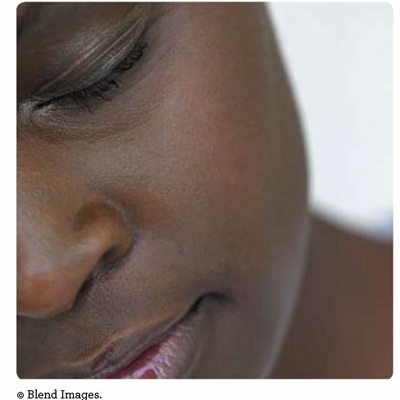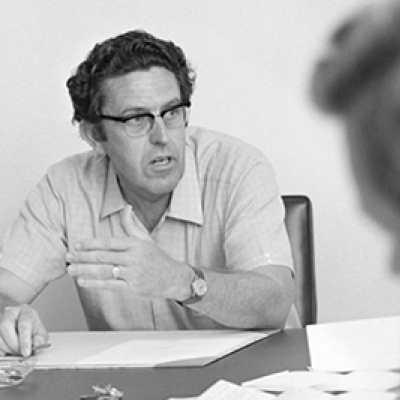Refine results
-
14 December 2012Book page
Social Justice Report 2004 : Appendix 1: Chronology of events relating to the introduction of new arrangements for the administration of Indigenous affairs, 2002 - 2004
This appendix provides an overview of the main events leading up to the introduction of the new arrangements for the administration of Indigenous affairs on 1 July 2004, as well as the key events which have occurred since that time to implement the new arrangements. -
19 September 2018Webpage

Complaints
We investigate and resolve complaints of discrimination and breaches of human rights. You can make a complaint no matter where you live in Australia. Our service is free, impartial and informal. -
Race Discrimination14 December 2012Project

In our own words - African Australians: A review of human rights and social inclusion issues (2010)
In 2007, the former Race Discrimination Commissioner, Tom Calma, had a vision to develop a human rights initiative based on the experiences of African Australians, to inform future policy and programs. -
14 December 2012Book page
HREOC Annual Report 2003-2004 : Chapter 4: Complaint Handling Section
The Complaint Handling Section (CHS) is responsible, through the President, for investigating and conciliating complaints lodged under federal anti-discrimination and human rights law. The CHS also delivers a Complaint Information Service. Accordingly, the CHS plays a key role in fulfilling the Commission's objective of delivering an Australian society in which human rights are protected. -
14 December 2012Book page
Social Justice Report 2005 : Appendix 1 : Chronology of events relating to the new arrangements for the administration of Indigenous affairs, 1 July 2004 - 30 June 2005
This Appendix provides an overview of main events since the introduction of the new arrangements for the administration of Indigenous affairs on 1 July 2004. It commences with a summary table and is followed by a detailed description of each event. -
14 December 2012Book page
Towards Accessible Telecommunications for People with Disabilities
4.1 Overview 4.2 Consumer Representation 4.2.1 Consumers' Telecommunications Network 4.2.2 Telecommunications and Disability Consumer Representation 4.2.3 Deaf Telecommunications Access and Networking 4.3 Disability Equipment Programs 4.4 National Relay Service 4.5 Any-to-any Text Connectivity 4.6 Telecommunications Disability Standard 4.7 Mobile Phones 4.7.1 Hearing Aid Interference 4.7.2 SMS… -
26 March 2014Book page
Chapter 7: Principle 4: Greater flexibility will strengthen the ADF
Key findings of Review The ADF Review found that flexibility is imperative for many Defence members, and that a lack of flexible work options – be that real or perceived – was acting as a serious impediment to retention. The ADF Review reported that in all three Services: There is an increased propensity for women to leave the ADF at points that coincide with a typical point where personnel … -
14 December 2012Book page
Report No. 41: El Masri v Commonwealth (Department of Immigration and Citizenship) (2009)
Introduction Part A: Structure of this report Part B: Summary of findings and recommendations Part C: The complaints by Mr El Masri Part D: The Commission’s human rights inquiry and complaints function Part E: Mr El Masri’s detention from 14 November 2002 to 14 October 2005 Part F: The detention of Mr El Masri on 28 November 2006 Part G: The detention of Mr El Masri in MSU Part H: Use… -
Legal14 December 2012Webpage
Australasian Railways Association application for temporary exemption under the Disability Discrimination Act: Recommendations (Consultation Draft)
These draft recommendations are being circulated for comment before final recommendations are put to the Human Rights and Equal Opportunity Commission. In view of the amount of discussion which has already occurred on this application a period of four weeks for comments is being provided. -
14 December 2012Book page
Annual Report 2002-2003: Chapter 2
The Complaint Handling Section (CHS) is responsible for investigating and conciliating complaints lodged under federal anti-discrimination and human rights law. Accordingly, the CHS plays a key role in fulfilling the Commission’s objective of delivering an Australian society in which human rights are protected. -
22 February 2024Webpage
Free + Equal Human Rights Conference
Hear from Australia's leading human rights advocates about how a Human Rights Act will put all our rights in one place and create a common tool for justice for people in Australia. -
14 December 2012Book page
HREOC Website: National Inquiry into Children in Immigration Detention
DR OZDOWSKI: My name is Dr Ozdowski and I am the Human Rights Commissioner and we are conducting an Inquiry into Children in Detention. To my left is Mrs Robin Sullivan who is Assistant Commissioner for the Inquiry and in her other life, she is Queensland Children's Commissioner and to my right is Professor Trang Thomas, Professor of Psychology at the Melbourne Institute of Technology and she is… -
14 December 2012Book page
Annual Report 2007-2008: Chapter 4 - Complaint Handling Section
The President of HREOC is responsible for the investigation and conciliation of complaints lodged under federal anti-discrimination and human rights law. Staff of HREOC’s Complaint Handling Section (CHS) assist the President to investigate and resolve complaints. The CHS also provides information to the public about the law and the complaint process through the Complaint Information Service… -
14 December 2012Book page
Achieving Aboriginal and Torres Strait Islander health equality within a generation - A human rights based approach
Improving the health status of Aboriginal and Torres Strait Islander peoples is a longstanding challenge for governments in Australia. While there have been improvements made in some areas since the 1970s (notably in reducing high rates of infant mortality1) overall progress has been slow and inconsistent. The inequality gap between Aboriginal and Torres Strait Islander peoples and other… -
14 December 2012Book page
Social Justice Report 2005 : Chapter 2 : Achieving Aboriginal and Torres Strait Islander health equality within a generation - A human rights based approach
Improving the health status of Aboriginal and Torres Strait Islander peoples is a longstanding challenge for governments in Australia. While there have been improvements made in some areas since the 1970s (notably in reducing high rates of infant mortality1) overall progress has been slow and inconsistent. The inequality gap between Aboriginal and Torres Strait Islander peoples and other… -
14 December 2012Book page
Native Title Report 2003 : Chapter 2 : Native Title Policy - State and Commonwealth profiles
Human rights principles require that Indigenous people's relationships to land, based on traditional laws and customs, be given legal recognition and protection. International legal principles also recognise that Indigenous peoples have economic, social and cultural human rights. Native title, as it is constructed through the Australian legal system, has a limited capacity to meet these human… -
14 December 2012Book page
Social Justice Report 2006: Chapter 2: The new arrangements for Indigenous affairs – facilitating Indigenous access to government services
It has now been over two years since the federal government introduced new arrangements for the administration of Indigenous affairs. One of the catchcries of the new arrangements is that they are aimed at ‘harnessing the mainstream.’ This is to be achieved by removing or reducing the barriers that prevent Indigenous peoples from accessing existing mainstream services on an equitable… -
14 December 2012Book page
HREOC - Annual Report 2001 - 2002: Chapter 2: Complaint Handling Section
The Complaint Handling Section had a productive year investigating and conciliating complaints of alleged discrimination and human rights breaches; providing information to the public about federal anti-discrimination and human rights law through its Complaint Information Service and community education and liaison program; and providing complaint investigation and resolution skills training to… -
Race Discrimination8 November 2016Project

Kep Enderby Memorial Lecture Series
The Australian Human Rights Commission has established the Kep Enderby Memorial Lecture to honour the memory of the Hon. Kep Enderby QC (1926-2015), who as Attorney-General introduced the Racial Discrimination Bill in the House of Representatives on 13 February 1975.
Pagination
- First page « First
- Previous page ‹ Previous
- 1
- 2
- 3
- 4
- 5
- 6
- Current page 7
